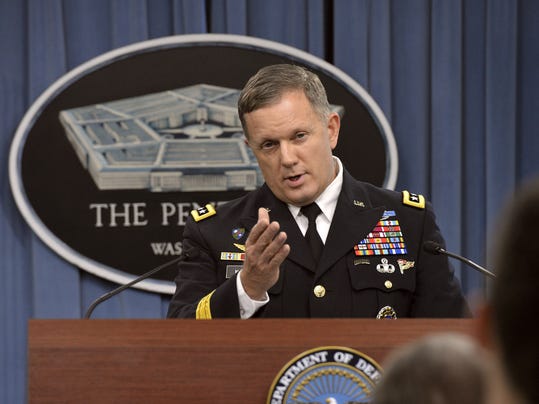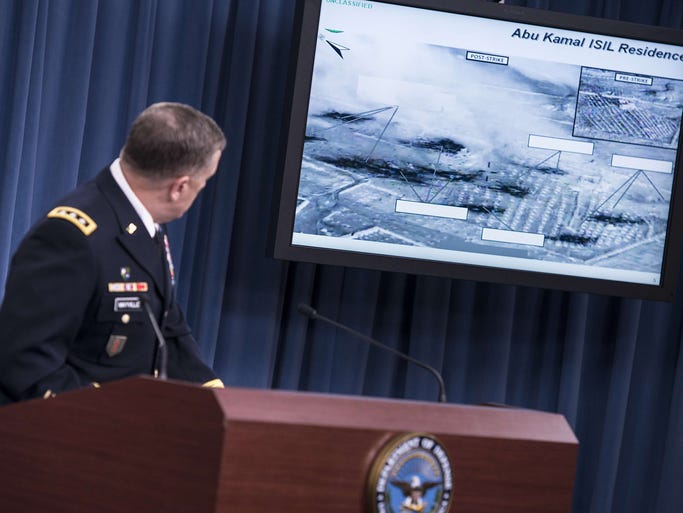
The airstrikes Monday in Syria disrupted major terror attacks planned against U.S. and western targets, Rear Adm. John Kirby, the Pentagon press secretary, said Tuesday.
The Khorasan terror group, an al-Qaeda-affliated terror organization, had established training camps in Syria and had been developing improvised explosive devices for use in attacks.
The airstrikes successfully hit their camp, said Army Lt. Gen. William Mayville, director of operations of the Joint Staff. However, he said assessment of the damage done to the group is still under way.
Khorasan was "nearing the execution phase" of the attacks against Europe or American targets, Mayville said.
Last week, James Clapper, the Director of National Intelligence, said the group posed a more direct threat to targets in the United States than ISIL fighters.
Deputy National Security Adviser Ben Rhodes said the government had been tracking the group "for some time. ... We believe that attack planning was imminent."
Samantha Power, the U.S. ambassador to the United Nations, alerted the Syrian government about the attacks on targets on Syrian soil, Rhodes said.
The group had "clear ambitions to launch external operations against the United States," Rhodes said. "We see this very much as an extension of the threat posed by al-Qaeda and their associated forces."
Rhodes said that Syria was "certainly unable" to counter the threat, suggesting that cleared the US to act on the Khorasan front.
Meanwhile, the airstrikes mounted by U.S. and Arab nation warplanes against terrorists in Syria are just "the beginning of a sustainable and credible" campaign that could last for years, Mayville said.
"Last night's strikes were only the beginning," Kirby said.
"It is not possible to know the duration of these deployments and operations," Obama said in a notification to Congress on Tuesday under the War Powers Act.
The initial assault came in three waves. The first was launched from sea by cruise missiles followed by waves of U.S. and Arab bombers and fighters. For the first time, the U.S. Air Force used its stealthy and expensive F-22 fighter in combat, Mayville said.
Obama gave the orders for the strikes the day after he visited U.S. Central Command in Tampa last week, Rhodes said. The timing of the strikes was not dictated by the United Nations meetings in New York this week.
"We didn't time this related to the UN meetings," Rhodes said.

President Obama thanked Saudi Arabia, the United Arab Emirates, Bahrain, Jordan and Qatar for their participation in the attacks on the Islamic State in Syria. VPC
Most of the bombs were dropped by U.S. warplanes, Mayville said, but he did not offer specific details.
There were no U.S. combat troops on the ground in Syria to help coordinate the airstrikes, Mayville said.
ISIL fighters will likely change their tactics after the attack, Mayville said.
"They are very well-funded," Mayville said. "They are a learning organization, and they will adapt to what we have done and seek to address their shortfalls and gaps against our air campaign in the coming weeks."



No comments:
Post a Comment